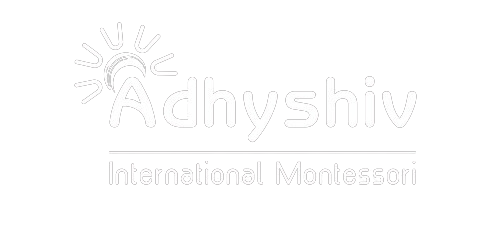
- Info@adhyshiv.com
- +91 78711 11111
- Mon - Fri 08:30 - 16:00
- Info@adhyshiv.com
- +91 78711 11111

Menu


Explore the role of parents in the Montessori educational journey. Discuss how active parental involvement and collaboration with teachers can enhance a child’s educational experience. Provide tips and insights on how parents can support Montessori principles at home, reinforcing the concepts and values taught in the classroom to create a cohesive and nurturing learning environment for their children.
Explore the role of parents in the Montessori educational journey. Discuss how active parental involvement and collaboration with teachers can enhance a child’s educational experience. Provide tips and insights on how parents can support Montessori principles at home, reinforcing the concepts and values taught in the classroom to create a cohesive and nurturing learning environment for their children.
In the Montessori educational philosophy, the active involvement of parents is not just encouraged; it’s considered an integral part of a child’s success. The collaborative effort between educators and parents creates a supportive ecosystem where a child’s growth and development can truly thrive.
Building a Partnership:
At the heart of Montessori education is the belief that every child is unique and capable of achieving their fullest potential when given the right environment and support. As parents, you play a vital role in creating this environment, both in and outside the classroom.
Effective Communication:
Open and transparent communication with your child’s Montessori teachers is the first step. Regular parent-teacher meetings and discussions provide insights into your child’s progress and areas where they may need additional support. This collaboration allows for a more tailored approach to your child’s education.
Creating a Montessori-Friendly Home:
One of the key aspects of parental involvement in Montessori is extending the principles of the classroom into your home. This means creating an environment that fosters independence, curiosity, and a love for learning. Here are some practical tips:
Respect for Independence: Encourage your child to make choices and take on responsibilities at home, just as they do in the Montessori classroom. This could involve simple tasks like setting the table or choosing their own clothing.
Provide Access to Materials: Offer age-appropriate Montessori materials at home. These can include puzzles, practical life activities, and art supplies. Having these materials readily available allows your child to engage in self-directed learning.
Promote Order and Organization: Montessori places a strong emphasis on order and cleanliness. Encourage your child to keep their space tidy and organized. Teach them how to put things away after use, fostering a sense of responsibility.
Follow Their Interests: Pay attention to your child’s interests and passions. Montessori encourages following a child’s natural curiosity. Provide books, resources, or experiences that align with their interests.
Limit Screen Time: Montessori education emphasizes hands-on learning and real-life experiences. Limit screen time and encourage active, imaginative play.
Creating a Cohesive Learning Environment:
When parents and educators work together, a child’s learning experience becomes consistent and holistic. What they learn in the classroom seamlessly aligns with what they experience at home, creating a cohesive educational journey.
Conclusion:
In the Montessori approach, parents are not just observers but active participants in their child’s education. By fostering open communication, creating Montessori-friendly homes, and collaborating with teachers, parents can truly enrich their child’s educational experience. Together, we can empower the next generation to become confident, independent, and lifelong learners.